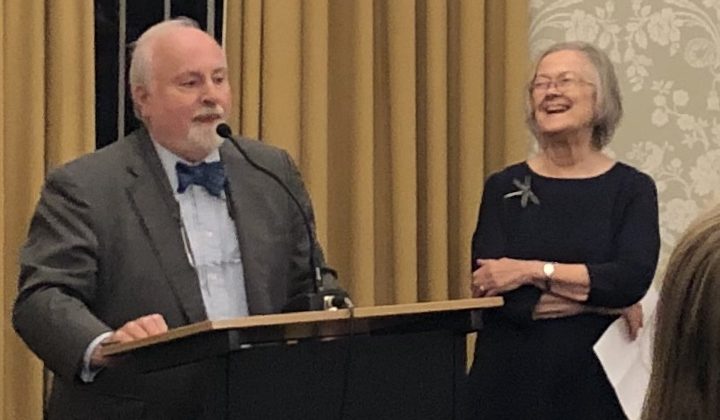Blowing the whistle for justice: could a fictitious judge have inspired a supreme new precedent?
When retired judge Peter Murphy invited Baroness Hale of Richmond to write the foreword to his latest collection of comic stories about a fictitious judge, he can have little thought that one of the fictional cases she would be introducing might have striking parallels with a real one coming before the Supreme Court.

Peter Murphy and Lady Hale were at Cambridge together as law undergraduates, as they fondly recalled at the launch of Murphy’s new book, Judge Walden: Call the Next Case, at the Law Society on 15 October.
In “Too Many Cooks”, one of the stories in the new volume, Walden’s fellow judge, Hubert Drake gets into trouble for writing a letter to the Daily Telegraph about prosecution failures to disclose evidence. Sitting judges are not supposed to write letters to the press, and the Grey Smoothies from the Ministry of Justice are on the warpath about it. Hubert claims to be a whistle-blower, and thinks he is immune from any disciplinary action. Charlie Walden and the other Bermondsey judges doubt that a judge can fall into that category, because office-holders such as judges are not technically ‘workers’. (That was the law as it then stood when Murphy wrote the story.)
Lo and behold, the very morning after the launch of the new volume, The Times reports that the Supreme Court, in a judgment delivered by Lady Hale, has changed the law in the very real case of District Judge Claire Gilham, who complained about discrimination and retribution after ‘whistle-blowing’, as she saw it, about the effects of austerity and government cuts in making our courts unsafe and inefficient. Reversing a number of decisions in lower courts, the Supreme Court held that a judge can be a whistle-blower in law, and so Judge Gilham will have her day in court, or at least in an employment tribunal.
Is it possible that Walden, and the heroic Hubert Drake, have led the way in this reform of the law? Murphy says: “I’m not going to ask, but it would be nice to think so!”
Image shows Murphy and Hale at the launch event last week.